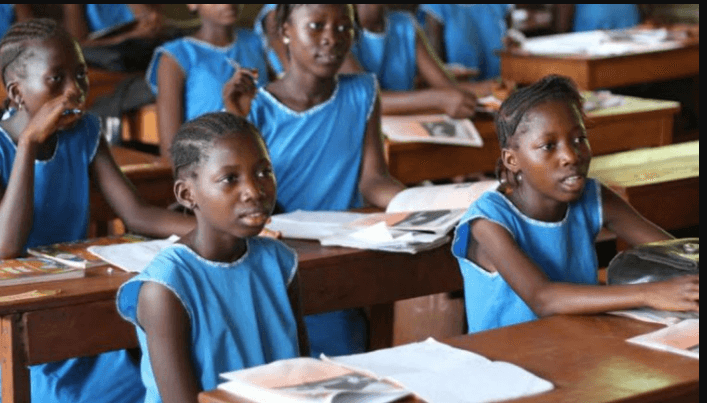For decades, Nigeria’s education system has nurtured millions of bright students. Yet, many of them still struggle to reach their full potential due to systemic challenges—crumbling infrastructure, limited digital access, poor teacher training, and a widening resource gap. These issues continue to undermine Nigeria’s human capital development and cast a long shadow on its economic future.
Educationists warn that without urgent reforms, the country risks falling further behind in global competitiveness. They argue that nations serious about shaping a future-ready workforce must invest in world-class infrastructure and teaching methodologies from the primary level upwards.
As Africa’s most populous country grapples with overcrowded classrooms, underpaid teachers, and a staggering number of out-of-school children, the statistics tell a troubling story. Nigeria ranks 124th in the global education index, a sobering indicator of the steep road ahead.
But amid these challenges, one organisation stands out for its consistent, strategic, and impact-driven response—MTN Foundation.
Established in July 2004 and funded by up to 1% of MTN Nigeria’s profit after tax, the MTN Foundation has over the past 20 years invested more than ₦30 billion across Nigeria in areas such as education, health, youth empowerment, and community development.
Among its most impactful initiatives are those targeted at the education sector—initiatives that have not only rebuilt broken structures but reimagined how education should be delivered in the 21st century.
“We believe education is the cornerstone of national growth,” says Odunayo Sanya, Executive Director of MTN Foundation. “All students deserve the tools and environment necessary to unlock their potential.”
In January 2025, the Foundation launched the Learning Support Materials Initiative (LSMI)—a nationwide intervention providing essential academic tools to public secondary school students. The project was designed to improve access to quality learning, particularly in underserved communities.
The MTN Science and Technology Scholarship Scheme is another cornerstone of its work. It supports 300-level students in Nigerian public tertiary institutions who are studying STEM-related courses. Students continue to receive the scholarship annually until graduation, provided they maintain required academic performance.
For inclusivity, the Foundation also runs the MTN Scholarship for Blind Students, which supports 200-level visually impaired students across public universities, colleges, and polytechnics.
To enhance the quality of science education at the grassroots, the Science and Technology Laboratory Project (STLP) has refurbished 102 laboratories in public secondary schools. These upgrades include modern lab equipment, alternative power solutions, digital learning tools, and dedicated training for teachers and lab technicians.
In 2024 alone, 29 new science and ICT labs were commissioned in schools across Kano, Gombe, Enugu, and Anambra—part of the third phase of the STLP programme aimed at bridging regional education inequality.
Recognising that education is only as strong as the teachers delivering it, MTN Foundation partnered with the SAIL Teachers Fellowship to train over 4,000 educators. These teachers were introduced to inquiry-based and digital learning strategies, helping to transform classrooms from rote instruction to hubs of creativity and critical thinking.
This capacity-building effort not only improves learning outcomes but equips educators to meet the demands of the digital economy.
MTN Nigeria employees, through the Y’ello Care initiative, have contributed immensely to improving education at the community level. Earlier this year, MTN staff renovated a school block at Iwerekun Community High School, Lakowe, demonstrating the company’s culture of corporate volunteerism.
In the 2025 edition of the initiative, volunteers contributed 3,947 hours and impacted 8,932 lives across the country under the theme “Connecting at the Roots—Connecting Communities through Digital Tools.”
Digital devices—laptops, tablets, and Wi-Fi hotspots—were deployed in schools and youth centres. Over 250 young people were trained in digital marketing, employability skills, and personal branding, preparing them to thrive in the digital age.
A new frontier is also being explored with the introduction of “Y’ello Pods”—community hubs combining e-learning, entrepreneurial coaching, and financial literacy. These pods provide a blueprint for inclusive digital empowerment in remote areas.
MTN Foundation’s initiatives align closely with the United Nations Sustainable Development Goals, particularly SDG 4 (Quality Education) and SDG 8 (Decent Work and Economic Growth). By equipping students with practical skills and digital literacy, the Foundation is actively building Nigeria’s future workforce—one prepared to lead, innovate, and compete globally.
Its focus on STEAM education (Science, Technology, Engineering, Arts, and Mathematics) has also spurred innovation—a crucial pillar of Nigeria’s economic diversification agenda.
As Nigeria faces the daunting task of revitalising its education system, the MTN Foundation provides a clear model for how strategic private sector investment can drive sustainable change.
With targeted scholarships, revamped infrastructure, teacher training, and digital literacy initiatives, the Foundation is helping to reimagine what quality education looks like—and making that vision a reality for thousands of Nigerian students.
“Education is not just a line item in our budget,” Sanya affirms. “It is the heartbeat of our social investment and a promise to future generations.”
As policymakers, educators, and stakeholders continue the conversation on education reform, the MTN Foundation’s efforts underscore an important truth: when commitment meets action, transformative impact is not just possible—it’s inevitable.

